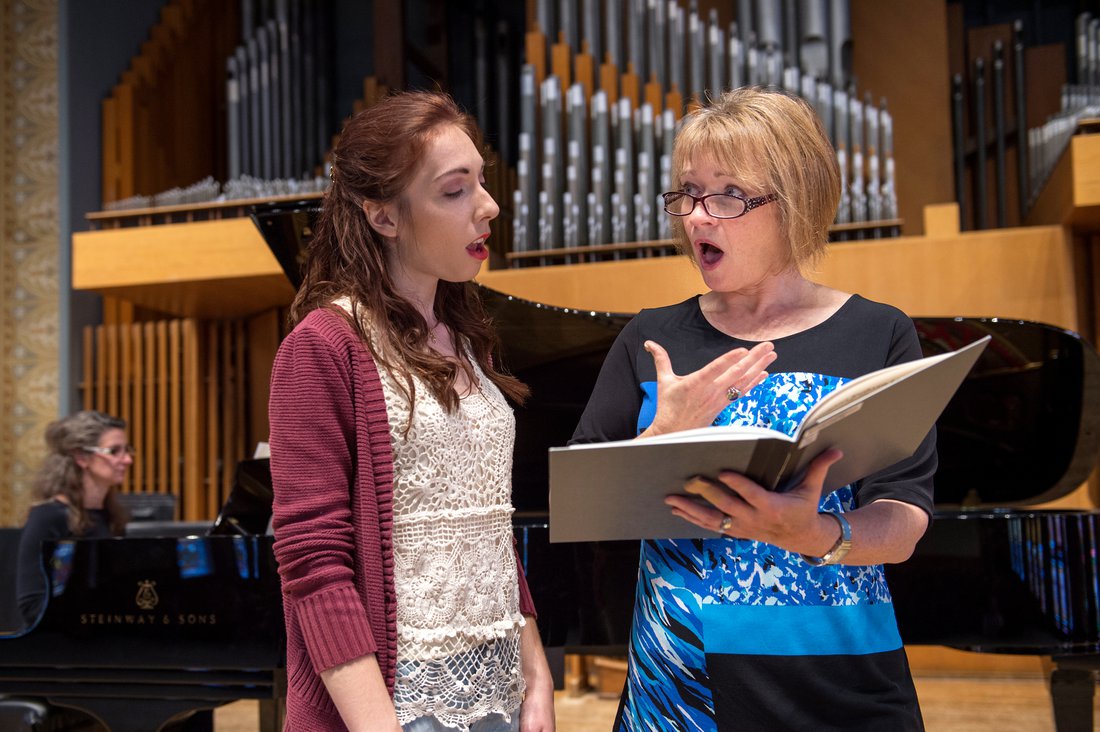
Choose the area of specialization in which you would like to perform—organ, percussion, piano, strings, voice, or wind instruments. Your focus will be on developing the technical skills, repertory, poise, and musicianship in the area that is your passion. You’ll also explore music history and ensembles and investigate other areas that interest you.
Your preparation will extend to different genres, styles, and techniques, including classical, jazz, free improvisation, and more. You’ll find opportunities to perform on and off campus, as a soloist, or with an ensemble. As a serious musician, your training will be at the highest level. You’ll be surrounded by accomplished musicians and instructors who will broaden your exposure and deepen your learning.
About VPA
Home to the visual and performing arts at Syracuse, VPA supports the creative process and professional development. The College is divided into seven areas: the School of Art; the Department of Communication and Rhetorical Studies; the School of Design; the Department of Drama; the Rose, Jules R. and Stanford S. Setnor School of Music; the Department of Film and Media Arts; and the Department of Creative Arts Therapy.
Courses
Sample courses for performance majors include:
- Basic Conducting
- Chromatic Harmony
- Ear Training III
- Analysis of Contemporary Music
- European and American Music Since 1914
Official Major Requirements
Practical Experience
As a performance major, you will have access to internationally-renowned resident and visiting artists. They’ll offer master classes focusing on different technical and interpretive viewpoints, as well as concerts, lectures, and presentations. Performing ensembles at the Setnor School of Music provide opportunities for you in your specialization:
- Organ/piano majors perform in Setnor’s weekly convocation for faculty and students, as well as in Hendricks chapel services, voluntaries, hymns, and liturgical choral music events.
- Strings majors perform in a large ensemble with the Syracuse University Symphony Orchestra.
- Voice majors must participate in choir—there are six different choirs to choose from. An Opera Workshop is also available, with fully-staged performances. A capella and First Year Players also put on productions.
- Woodwind, brass, and percussion majors take part in Syracuse’s Wind Ensemble.
The Setnor School of Music is located in Crouse College. It’s one of the oldest buildings on campus and is featured on the National Register of Historic Places. The building also houses the 700-seat Rose and Jules R. Setnor Auditorium, which features a 3,823-pipe Holtkamp Organ. Some 200 recitals are held here each year. Classrooms and rehearsal spaces are located in Crouse College and Shaffer Art Building, and a recording studio is located in the Belfer Audio Archives.
Study Abroad
Today’s musicians must prepare for careers on a global level. The Setnor School has designed study abroad programs in London and Los Angeles that not only broaden your perspective and enhance your resume, but maximize your international experience and coordinate with your graduation timeline. Syracuse Abroad also offers more than 100 programs in 60 countries.
Performance majors enjoy a weeklong immersion program in New York City, called the Gilbert Week, during spring break of sophomore year. You’ll gain insight into music careers, meet with alumni and arts professionals, and visit some leading arts organizations and institutions.
Life After Syracuse University
As a College of Visual and Performing Arts graduate with a major in performance, you can explore such careers as:
- Symphony musician
- Composer
- Conductor
- Music teacher
- Studio musician
- Music arts coordinator
- Opera performer
- Touring musician
